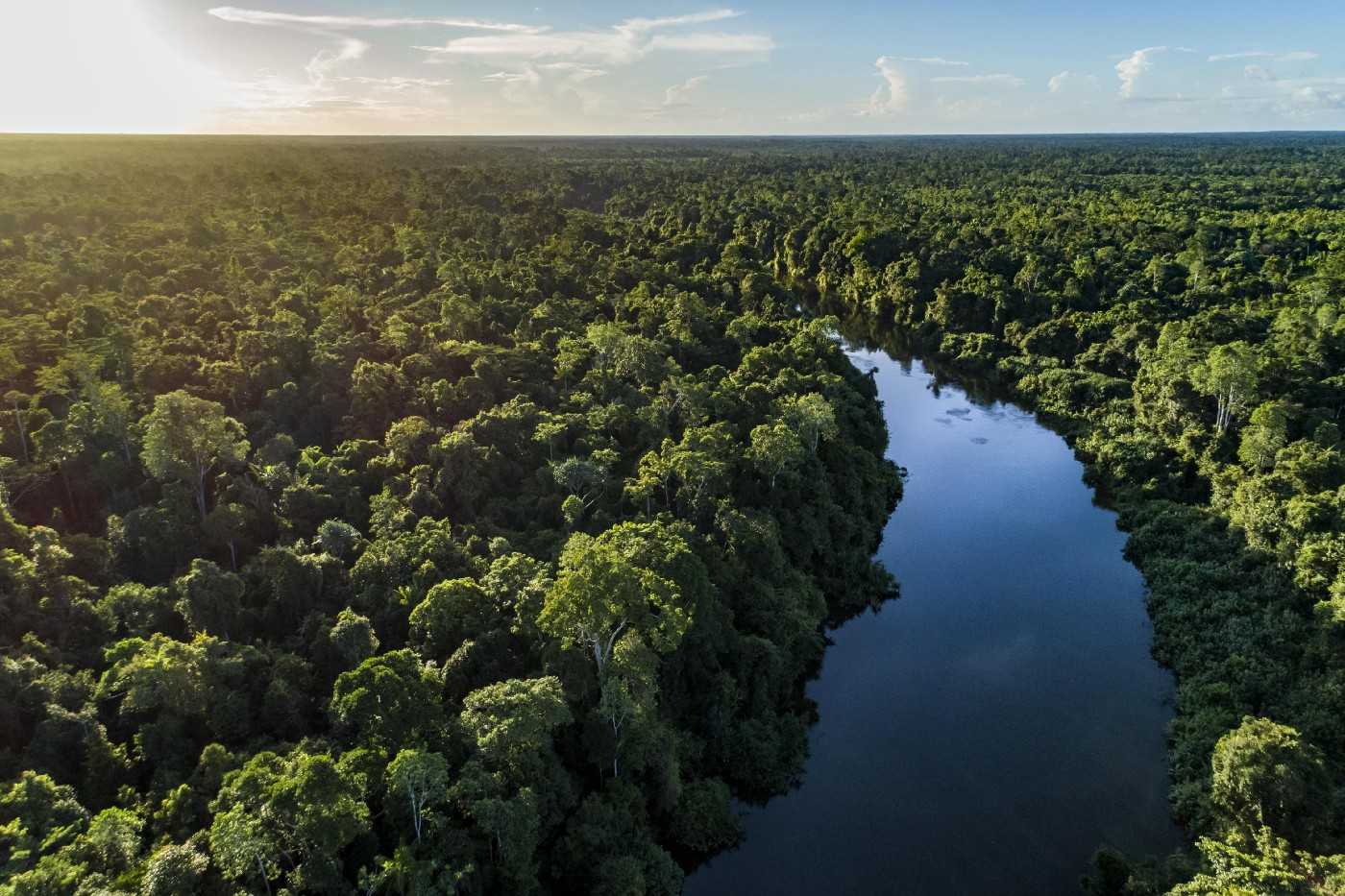When Indonesian government officials received a credible allegation that the permits underpinning a giant oil palm plantation project in Papua province had been falsified, the logical next step would have been to launch a criminal investigation.
After all, the consequences were huge: The project would result in the destruction of an area of rainforest twice the size of London, affecting thousands of indigenous people. If the allegation stood up, it was a fraud perpetrated against the government itself.
However, as The Gecko Project and Mongabay revealed this week, the government has instead allowed the Tanah Merah project to go ahead. Officials have buried the allegation, cutting a deal with the companies involved to allow them to continue clearing forest. “It’s done,” one official involved told us.
The case provides a rare glimpse into how competing government priorities are playing out behind closed doors, and which is winning. On the one hand, President Joko Widodo has pledged to rein in the palm oil sector, which has been plagued by illegalities and corruption widely seen as exacerbating its role in driving deforestation and greenhouse gas emissions. On the other hand, the president has expressed his intent to bring “development” to remote regions.
In this instance, at least three ministries have turned a blind eye to a credible allegation of criminality that will have enormous environmental impacts, in the interests of protecting investment.
Our short film about the investigation, released this week.
The Indonesian government has long struggled to impose order on plantation and mining firms. Successive studies by the government itself have revealed the scale of unlawful oil palm plantation development.
Just this year, the government audit agency, known as the BPK, found that more than 80 percent of large plantations were not compliant with regulations, and another investigation found a fifth were operating illegally in the “forest zone.”
Under Widodo, things are supposed to be moving in a different direction. It is specifically because of the weak regulation of the sector, believed to have played a significant role in the forest fires that choke the region on an annual basis, that last year the president instructed his government to carry out a legal review of all oil palm plantation permits in the country.
Yet in the government’s internal deliberations over what to do about the allegedly fraudulent permits, Widodo’s review played at best a limited role. Far greater weight was placed on other recent regulations aimed at streamlining investment.
The decision is all the more perplexing — and concerning — for the fact that the project is in Indonesia’s easternmost Papua region.
The two provinces that make up this region, Papua and West Papua, hold more than a third of the remaining intact rainforest in Indonesia. Last October, the two provincial governors pledged to protect 70 percent of all the land in their jurisdictions, preserving it from the industrial-scale activities that have shredded rainforests almost everywhere else in Indonesia.
The pledge was a cornerstone of the Manokwari Declaration, a manifesto for a more sustainable vision of the future, in which forests and biodiversity would be protected and the rights of indigenous peoples would be strengthened. A development pathway would be forged without the trail of destruction and exploitation seen in other parts of the country
The stakes are high. If the spirit of the declaration succeeds, Indonesia will preserve one of the world’s last great expanses of wilderness, potentially avoiding enough greenhouse gas emissions for the country to uphold its commitment under the Paris Agreement on climate change. Fail, and the target could be out of reach.
While the 70 percent pledge was the most attention-grabbing feature, the Manokwari Declaration also committed the governors to “uphold law enforcement” in the natural resources sector. This — the rule of law — is arguably the most important enabling factor for the policy to succeed. Without it, protected areas and indigenous rights will be rendered meaningless.
For this reason, while the Tanah Merah project may on its own blow a gaping hole in the rainforest, its significance may extend even further. It could be a bellwether that indicates whether the Manokwari Declaration is window dressing while the government allows the same laissez-faire approach to development that has attracted global ignominy, or whether it is really ready to forge a new path.
To see other articles plus films and photos from The Gecko Project as they come out, follow us on Facebook, Twitter, Instagram and YouTube. Sign up to our mailing list here. The Gecko Project stories are available in Bahasa Indonesia at our Indonesian site here.

